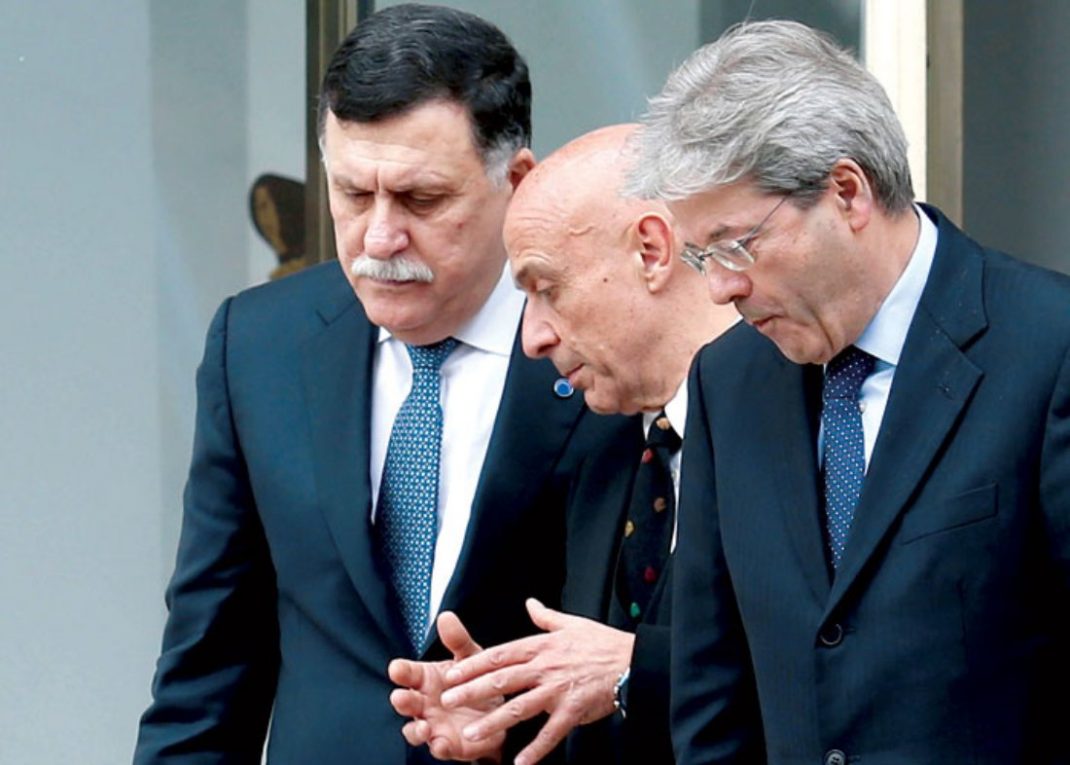By Elissa Miller
Libya’s most valuable resource will continue to be a flashpoint of conflict in the divided country.
Libya’s state of unrest was fully evident on March 3rd, when fighting broke out between the Benghazi Defence Brigades and the forces of Field Marshall Khalifa Haftar’s Libyan National Army (LNA) in Libya’s oil crescent. Only a week later, clashes erupted in Tripoli between rival militias supporting and opposing the Government of National Accord (GNA), leaving the UN-backed government’s hold on Tripoli tenuous.
Fighting in the Gulf of Sidra surrounding Libya’s oil facilities demonstrated that Libya’s most valuable resource will continue to be a flashpoint of conflict in the divided country.
The international community issued several statements in response to these developments. On March 16th, the ambassadors of France, Italy, the United Kingdom and the United States released a joint statement calling for an end to violence and “any action that could damage Libya’s infrastructure”. The Arab League, the African Union, the European Union and the United Nations held a meeting to discuss the developments in Libya and issued a joint communiqué on March 18th condemning violence in the oil crescent and calling for dialogue and immediate de-escalation.
Days later, UN Special Representative Martin Kobler reiterated the quartet’s call to end the fighting.
Yet after the multiple crises and battles for power that have erupted in Libya since 2014, such statements have become stale reminders that international leadership is critically absent.
In September 2016, Haftar and his army took over the strategic oil ports in Libya’s Gulf of Sidra before later agreeing to allow the National Oil Corporation to control oil production and access oil revenues. In response to the incident, a number of Western and regional powers, including Italy, France, the United Kingdom, the United States, the United Nations, the European Union, the Arab League and the African Union, issued a joint communique expressing support for Libya’s political agreement that established the GNA and calling for an end to the violence and “provocative actions”.
However, much of the statement rang hollow due to self-interested moves by several of these external actors.
Both the joint statement on March 16th and the quartet communiqué on March 18th emphasised the importance of granting full control of Libya’s oil facilities to the National Oil Corporation. They also highlighted the need for dialogue among different parties in Libya and the importance of reaching an inclusive, negotiated settlement. Underpinning both of these responses was stated support for the implementation of the Libyan political agreement as the way forward for the country.
While positive in principle, such rhetoric appears meaningless in the face of increasingly dire conditions on the ground. Today, any possibility of an agreement or constructive dialogue between the east and the west of the country appears all the more distant. The eastern House of Representatives, which backs Haftar, and the UN-backed GNA led by Fayez al-Sarraj, has withdrawn from negotiations with Tripoli. The west remains divided among rival militias, further weakening Sarraj’s government.
The concept of inclusivity seems completely divorced from reality. While the National Oil Corporation has said that it expects to retain full control over operations at the ports in the oil crescent following the recent clashes, fighting is likely to continue in the area surrounding the oil installations.
The international community is in need of fresh thinking and action. Only that can help address the challenges posed by continuing instability in Libya. Kobler has repeatedly stressed that the responsibility to end the country’s violence “lies first and foremost with the Libyans themselves”.
Still, the international community is not without blame. It is well-documented that several international actors have been “playing both sides” by rhetorically supporting the GNA while also lending some support to Haftar.
US leadership has fallen to the wayside. The United States is the only country capable of pushing external actors to cease support for proxies in Libya and pressuring all sides to come to an agreement. However, the Trump administration shows no indication of assuming such a role. The United States’ veto of former Palestinian prime minister Salam Fayyad to replace Kobler did nothing to help the legitimacy of UN efforts in Libya.
During a recent visit to Washington, Italian Foreign Minister Angelino Alfano urged the international community to view Libya as a top priority for global security. Unfortunately, international rhetoric has not been backed up by action. As the situation in Libya continues to worsen, the level of prioritisation and leadership needed to tackle the crisis is lacking.
***
Elissa Miller is an assistant director at the Atlantic Council’s Rafik Hariri Center for the Middle East.
___________




